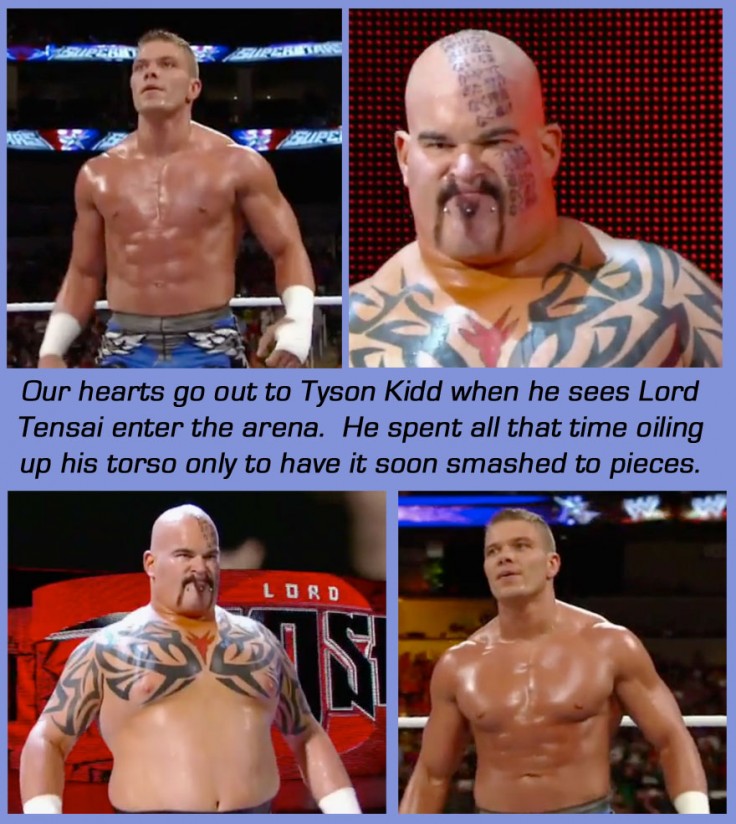 Here is a match featuring Tyson Kidd against Lord Tensai. The contrasts between the two men are obvious: one is youthful, fit, and sporty. The other is beastly, massive, and vicious. Tyson Kidd looks like a child when he stands face-to-face with Lord Tensai.
Here is a match featuring Tyson Kidd against Lord Tensai. The contrasts between the two men are obvious: one is youthful, fit, and sporty. The other is beastly, massive, and vicious. Tyson Kidd looks like a child when he stands face-to-face with Lord Tensai.
The names of the wrestlers also reveal their relative strength and power. The first name of “Lord” implies wealth and military strength, whereas the last name of “Kidd” indicates that this young man is naive, inexperienced, and vulnerable.
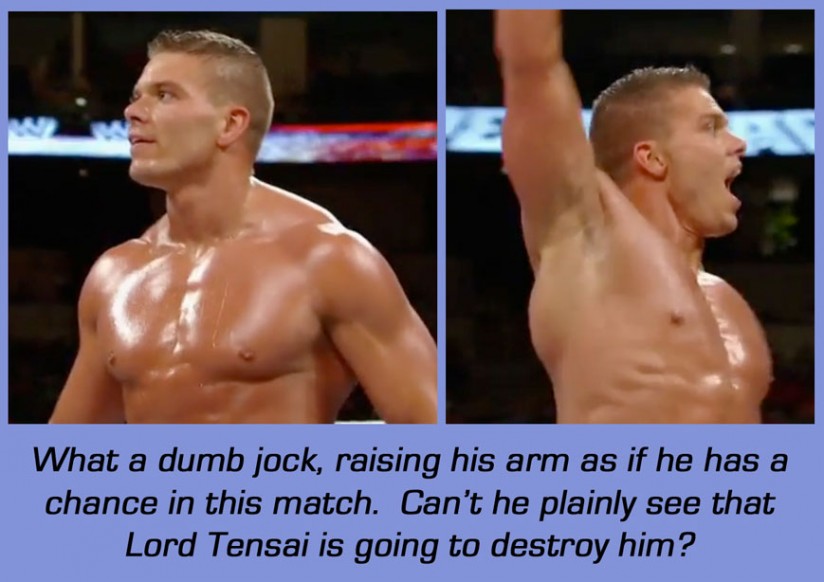
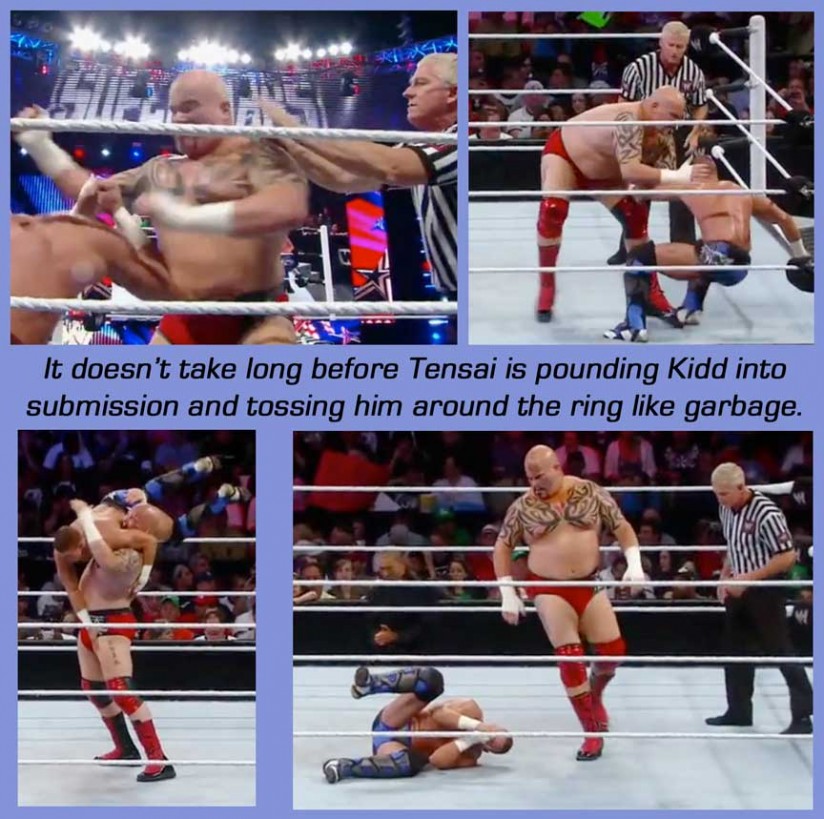
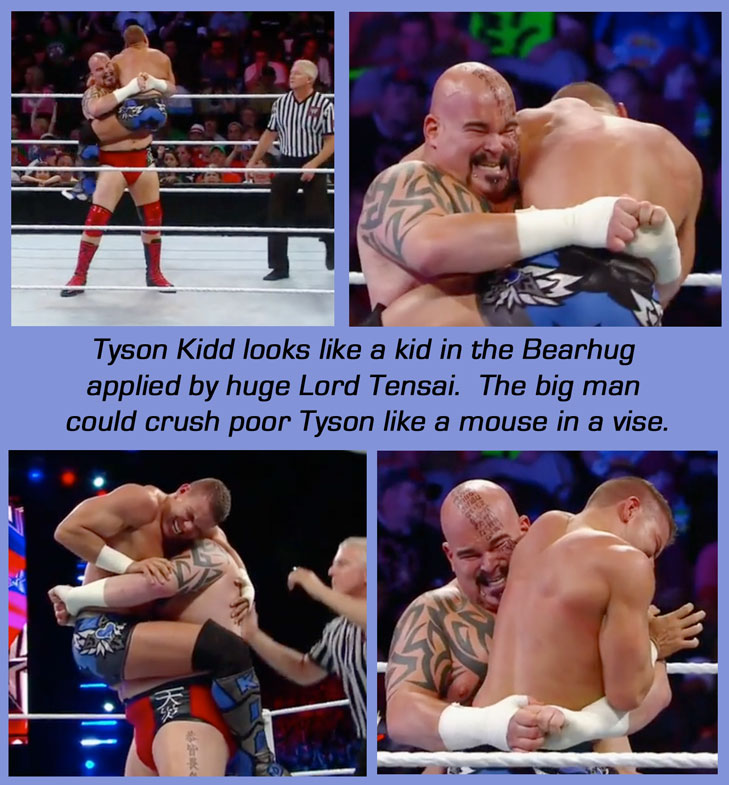 Every wrestling federation seems to include at least one “Unbeatable” wrestler like Lord Tensai who strikes fear in the hearts of his opponents and the fans. He is larger than the other men and overwhelmingly powerful. What role does this big invincible monster play in the story-line — the message they’re trying to convey in the match?
Every wrestling federation seems to include at least one “Unbeatable” wrestler like Lord Tensai who strikes fear in the hearts of his opponents and the fans. He is larger than the other men and overwhelmingly powerful. What role does this big invincible monster play in the story-line — the message they’re trying to convey in the match?
It’s interesting that the ideal specimen of masculine strength and ferocity (which are desirable traits for a dude) is represented by the villain — the one we’re supposed to hate and fear. Meanwhile the hero, whom we’re meant to cheer for (and identify with) embodies vulnerability, weakness, and helplessness — not the characteristics we would normally worship and honor in a man. Why do we feel compelled to love and cheer for the loser — the weaker, more vulnerable opponent who can never defeat the Unbeatable Wrestler?
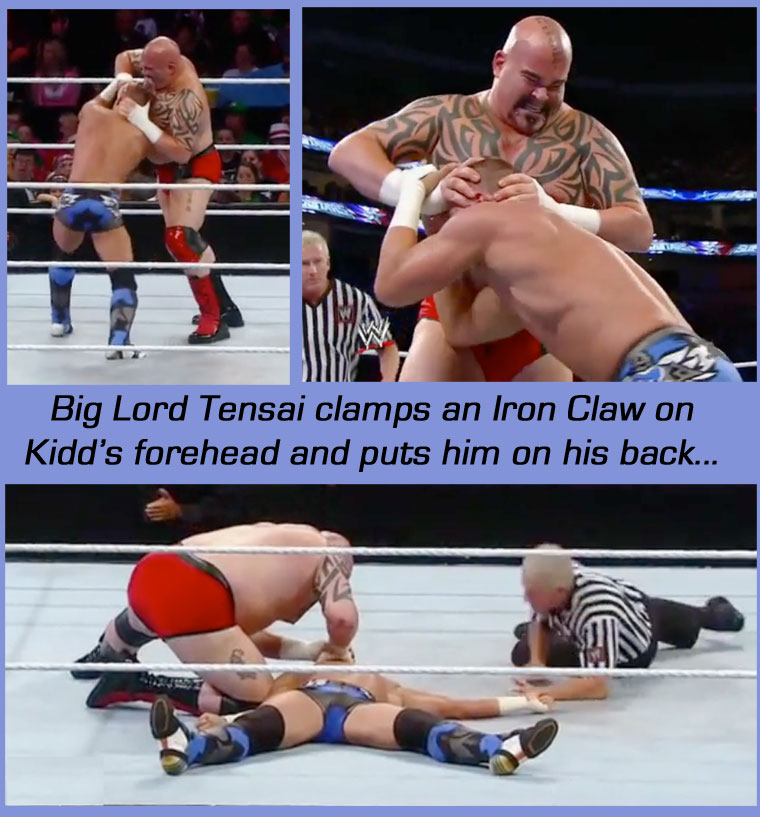 I believe the Unbeatable Wrestler represents the original model of masculine strength in our lives, i.e., our daddy. When you’re a youngster, your Dad is the “Lord” of the castle just as Tensai is Lord of the ring. At a certain age, all boys look up to their father, think of him as omnipotent, and hope to grow up some day to be just like Dear Old Dad. Psychologically, the Unbeatable Wrestler answers the question: who’s your daddy?
I believe the Unbeatable Wrestler represents the original model of masculine strength in our lives, i.e., our daddy. When you’re a youngster, your Dad is the “Lord” of the castle just as Tensai is Lord of the ring. At a certain age, all boys look up to their father, think of him as omnipotent, and hope to grow up some day to be just like Dear Old Dad. Psychologically, the Unbeatable Wrestler answers the question: who’s your daddy?
The heroic Baby-Face wrestler, Ty-“Son” Kidd, represents a vulnerable child (“Kidd”), who is hopelessly smaller and weaker than his Dad. We cheer for the vulnerable kid because he reminds us of our own frustrating childhood when we could never defeat, over-power, or subjugate the dominant male in our life — Dad.
Therefore, a match featuring an Unbeatable Wrestler like Lord Tensai squashing a smaller Baby-Face hero plays upon the viewer’s own Oedipal Complex – a boy’s sub-conscious desire to destroy or get rid of his father. We cheer for the kid to beat down the Unbeatable (Daddy) Wrestler, but he can’t because he’s too little — much like our inner boy feels small, intimidated and threatened, at least sub-consciously, by our big Papa.
At some point, every “Unbeatable Wrestler” will suffer a loss and his hyper-masculine power and mystique will vanish. He can continue to wrestle, but he will be portrayed as a regular guy with a typical Win/Loss record. This defeat of the Unbeatable Wrestler therefore represents the resolution of the Oedipal Complex — the time when the young man separates from his father’s influence and no longer compares himself or competes against him. But Tyson is still just a Kidd.

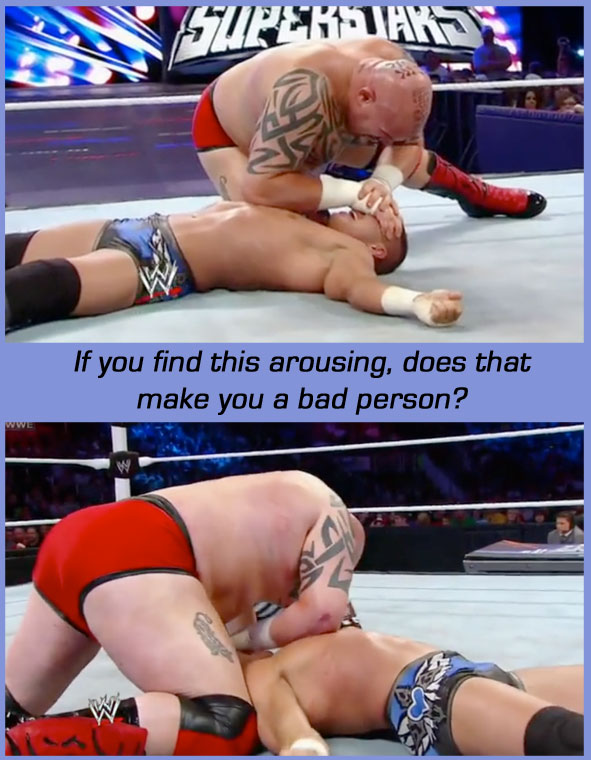
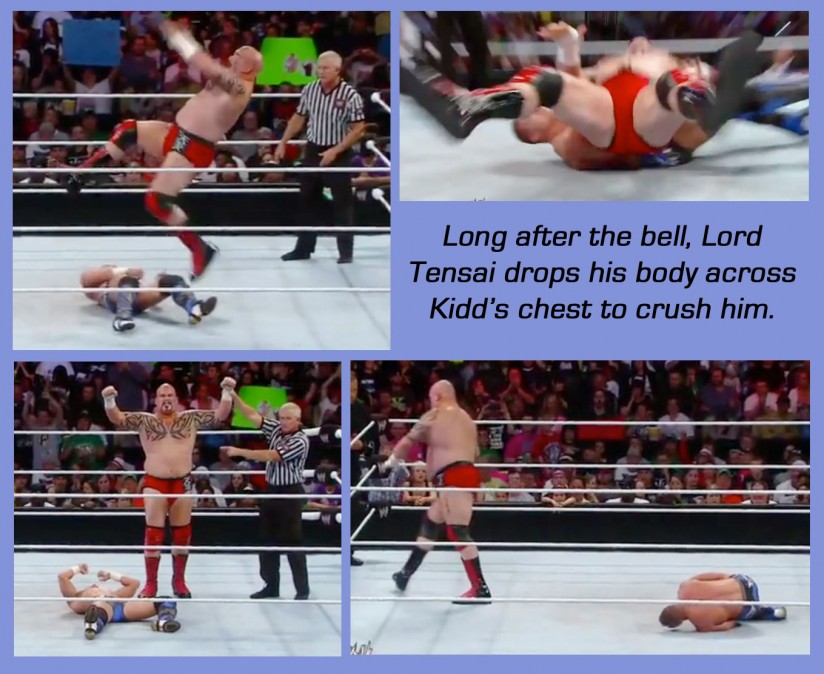
THIS is the type of pro wrestling I want to see. A kid paying his dues before becoming the hottest star in the ring.